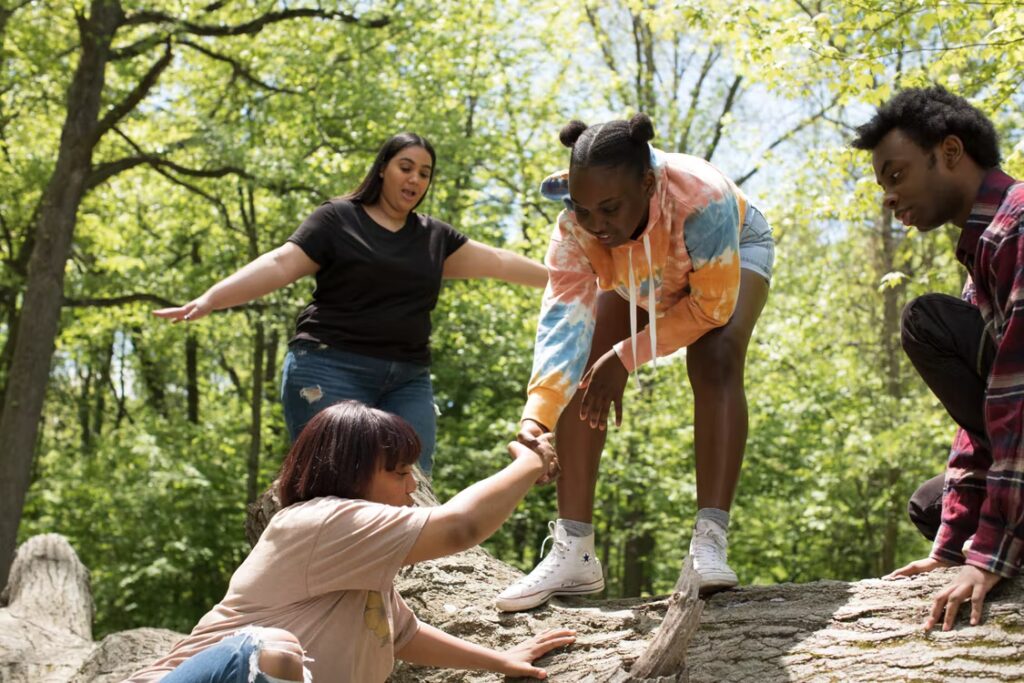Your cart is currently empty!
As caregivers of children with autism and developmental differences, it’s easy to feel like we must manage every challenge on our own. However, research shows that reaching out isn’t a sign of weakness—it’s a vital step toward resilience. In fact, one study found that African American female caregivers who lean on trusted community supports—especially church members—are more likely to access emotional and mental health services when they need it (Pickard et al., 2011).
“If you don’t ask, it’s already a no. The Bible says, ‘Ask, Seek, and Knock. All three require action and commitment from you.” ~TY, aka Mama Big Bird
Asking for help also breaks down stigma. In another study of African American adolescent boys, the data showed that strong family and social support can minimize shame around mental health. Such strong supports can also provoke right-on-time requests for help (Lindsey & Nebbitt, 2010). Consequently, when we share our struggles, we not only normalize vulnerability but also model self-advocacy for our children.


In a similar way, when parents participate in culturally relevant programs, like those offered by Seeds 2 Nurture, they can jump-start the process towards their own self-advocacy. Magaña, Lopez, and Machalicek (2017) piloted “Parents Taking Action,” a Spanish-language, promotora-led (led by a health worker that the community trusts) workshop for Latino caregivers of autistic children. Parents in that program reported significant boosts in confidence and empowerment after engaging with peers and professionals (Magaña et al., 2015). What does this mean? It means that structured support reminds us we’re not alone—and gives us practical tools to advocate for our families.
Do This For You. Then, Do This For Them.
At Seeds 2 Nurture, we believe self-care starts with asking for help. Whether it’s a friend who drops off a meal, a weekly church or social group, or a resilience coach who helps you troubleshoot IEP goals, every ask is a seed in cultivating “your support system.” When you reach out and ask for help, you are honoring yourself with space for rest, proper self-care, and growth, for both you and your child. If there are those who sit and watch you struggle as you parent your children and get the care you need, that is NOT your support system. Trust, we know! That’s why we’re here to walk beside you with resources, coaching, and a caring circle. So, are you ready to ASK for the help you need?
Then C’mon! Let’s cultivate those seeds together!
~TY Marian
References
Pickard, J. G., Inoue, M., Chadiha, L. A., & Johnson, S. (2011). The relationship of social support to African American caregivers’ help-seeking for emotional problems. Social Service Review, 85(2), 247-266. https://doi.org/10.1086/660068.
Lindsey, M. A., Joe, S., & Nebbitt, V. (2010). Family matters: The role of mental health stigma and social support on depressive symptoms and subsequent help seeking among African American boys. Journal of Black Psychology, 36(4), 458–482.
Magaña, S., Lopez, K., & Machalicek, W. (2017). Parents Taking Action: A psycho-educational intervention for Latino parents of children with autism spectrum disorder. Family Process, 56(1), 59–74. https://doi.org/10.1111/famp.12169


Leave a Reply